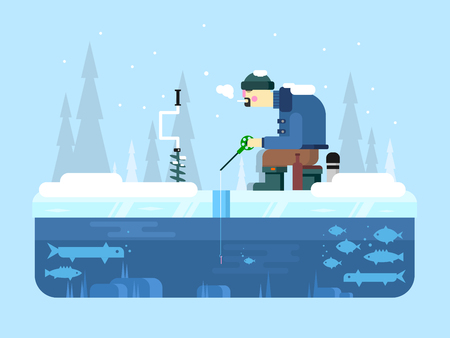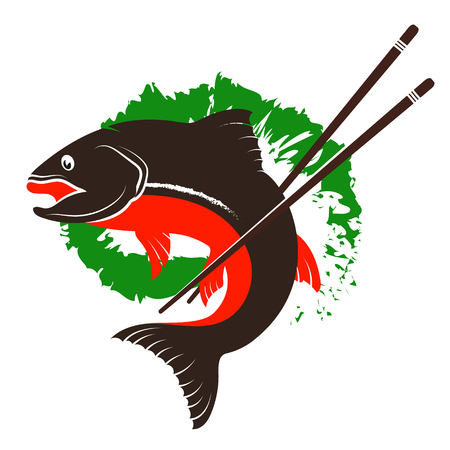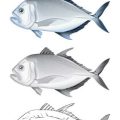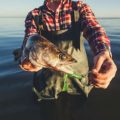Introduction to Pier and Harbour Fishing in the UK
If you’ve ever strolled along a British seaside town, chances are you’ve spotted anglers lined up on piers or dotted around bustling harbours, rods in hand, chatting with locals or quietly waiting for a bite. Pier and harbour fishing is a beloved tradition across the UK, drawing everyone from curious beginners to seasoned sea anglers eager for their next catch. Whether you’re casting out into the salty breeze of Brighton Palace Pier or trying your luck at the historic harbours of Whitby or Brixham, there’s a unique local charm and camaraderie to be found. The accessibility of these spots means you don’t need a fancy boat – just pack your rod, some bait, and perhaps a thermos of tea, and you’re set for a day on the water’s edge. Piers and harbours offer not only great fishing but also an easy way to soak in the character of coastal Britain, making them hotspots for both angling and friendly banter. In this guide, we’ll walk you through what makes pier and harbour fishing so special in the UK, share tips on local etiquette, reveal some favourite locations, and provide best practices to help you make the most of your time by the sea.
Essential Etiquette on the British Waterfront
Fishing from UK piers and harbours isn’t just about catching the big one—it’s also about joining a friendly community and respecting the traditions that make angling here so enjoyable. Whether you’re new to the scene or a seasoned hand, following local etiquette is key to making friends, avoiding mishaps, and ensuring everyone has a cracking day out. Here’s a handy guide to the most important do’s and don’ts for blending in and keeping things shipshape on the pier.
Key Do’s for Pier and Harbour Fishing
Do |
Why It Matters |
|---|---|
| Greet fellow anglers with a nod or “alright mate?” | It’s a simple way to break the ice and show respect for others sharing the space. |
| Keep your kit tidy and out of the way | Nobody wants to trip over rods or bait buckets—tidy gear means safer, happier fishing all round. |
| Share tips if asked | The UK angling scene thrives on good-natured banter and advice swapping—don’t be shy! |
| Observe local catch limits and size restrictions | This keeps our fish stocks healthy for everyone, now and in future seasons. |
| Use bins for rubbish and old tackle | Piers are public spaces—leave them as tidy as you found them (or tidier). |
Major Don’ts to Avoid Faux Pas
Don’t |
Why It’s Best Avoided |
|---|---|
| Cast over someone else’s line (“crossing swords”) | This can cause tangles and is guaranteed to get you a few stern looks. |
| Take up more than your fair share of space | Piers can get busy—hogging room won’t win you any mates. |
| Loud music or shouting across the pier | A peaceful atmosphere is part of the charm; keep noise down to enjoy the sounds of the sea. |
| Ignore local signage or bailiff advice | Rules are there for everyone’s benefit—following them shows respect for the venue and its community. |
| Leave bait, hooks, or litter behind | This endangers wildlife, pets, and people—and it gives anglers a bad name. |
Banter and Building Rapport: The British Way
If you fancy making some new fishing pals, don’t be afraid to join in with a bit of light-hearted chat. Ask how the fishing’s going (“Any luck?” is a classic opener), offer help if someone looks like they’re wrestling a big one, or simply swap stories about the one that got away. Most UK anglers appreciate good manners, respect for space, and a touch of humour—it’s all part of what makes our piers such sociable places.

3. Top Hotspots: Favourite UK Piers and Harbours
When it comes to pier and harbour fishing in the UK, each region has its own gems that locals cherish and travelling anglers dream about. Let’s take a friendly stroll around England, Scotland, and Wales to uncover some of the most popular spots and what makes them truly special.
England’s Iconic Spots
Brighton Marina, East Sussex
Brighton Marina is a classic go-to for both beginners and seasoned anglers. With easy access, plenty of space, and a variety of species—think mackerel, bass, and even the odd conger eel—it’s always buzzing with activity. You’ll find a great community vibe here, especially during summer evenings when everyone seems to be swapping stories as much as they’re casting lines.
Pier of Deal, Kent
The historic Deal Pier is well-known for its deep water and year-round action. It’s a brilliant spot for cod in winter and mackerel in summer. The pier is thoughtfully designed for anglers, with benches, bait tables, and even lighting for those who fancy an all-nighter. Expect friendly banter from local regulars—they’re usually more than happy to share tips (or the occasional fishy tale).
Scottish Favourites
Aberdeen Harbour
Aberdeen Harbour is famous for its rugged charm and abundance of pollock, coalfish, and flatfish. The ever-changing North Sea weather means every visit feels like a new adventure. Locals swear by the sunrise bite—there’s nothing quite like reeling in your breakfast as the city wakes up behind you.
Largs Pier, North Ayrshire
Largs offers stunning views over the Firth of Clyde alongside excellent fishing opportunities. It’s particularly good for wrasse, pollock, and dogfish. The atmosphere here is welcoming—anglers often gather in small groups sharing flasks of tea while waiting for their next bite.
Welsh Wonders
Holyhead Breakwater, Anglesey
This mammoth structure stretches over 1.5 miles into the Irish Sea and is legendary among Welsh anglers. You’ll encounter everything from mackerel to rays here, with the chance of landing a monster conger if you’re lucky. The sheer scale means there’s room for everyone—even on busy weekends—and the camaraderie is palpable.
Mumbles Pier, Swansea
Mumbles Pier not only boasts beautiful coastal scenery but also offers solid fishing for bass, whiting, and dogfish. The nearby café keeps you topped up with hot drinks on chilly days—just don’t forget your waterproofs! Locals are known for their warm welcomes; don’t hesitate to ask for advice or join in a chat about the day’s catches.
The Takeaway
No matter which corner of the UK you cast your line from, each pier and harbour has its own character—and its own group of passionate anglers happy to show newcomers the ropes. Whether you’re after a quick evening session or planning a weekend away, these hotspots offer more than just fish; they promise memorable experiences set against some of Britain’s most scenic backdrops.
4. Best Tactics and Tackle for Pier Fishing
When you’re setting up on a British pier or harbour, choosing the right gear and tactics makes all the difference. UK piers offer a variety of species and conditions, so tailoring your rigs and bait to the season is key. Let’s break down what works best under real-life UK fishing scenarios.
Practical Rigs for UK Piers
The ever-reliable two-hook flapper rig is a favourite among local anglers, allowing you to present multiple baits at different depths. For those targeting bigger species like bass or conger eel, a simple running ledger rig can give you the edge, especially around dusk when predators are on the prowl.
| Rig Type | Best For | Top Tip |
|---|---|---|
| Two-hook flapper | Flatfish, whiting, pouting | Use size 1 hooks with worm baits for winter sessions |
| Running ledger | Bass, conger eel, larger species | Try a big peeler crab or mackerel chunk as bait during summer evenings |
| Pulley rig | Rough ground (snaggy piers/harbours) | Ideal for codling in autumn—pair with squid strips or lugworm |
Bait Choices Through the Seasons
Your bait should match both the target species and the time of year. In early spring and late autumn, classic British baits like ragworm and black lugworm reign supreme—especially for codling and flatties. Summer brings more variety: try mackerel strips for pollack and garfish, or sandeel if you’re after bass. Don’t forget peeler crab during late spring—local wrasse can’t resist them!
| Season | Main Species | Bait Suggestions |
|---|---|---|
| Spring | Flounder, plaice, early bass | Lugworm, peeler crab, ragworm |
| Summer | Mackerel, bass, garfish, pollack | Mackerel strip, sandeel, squid pieces |
| Autumn/Winter | Codling, whiting, dabs | Lugworm cocktails, black lugworm, squid strip |
Tackle Recommendations for UK Piers & Harbours
A 10-12ft beachcaster rod paired with a sturdy fixed spool reel covers most situations on UK piers. Go for 15-20lb mainline if you’re near rough ground or targeting bigger fish. For general fishing from harbour walls where you expect smaller species, a lighter spinning outfit (8-9ft rod with 10lb line) keeps things sporting but effective. Don’t forget an extendable drop net for landing better fish safely from height—it’s standard kit on many British piers.
Bonus Tips from the Pier Wall:
- If crabs are stripping your bait fast (a common summer problem!), try using elasticated thread to secure soft baits.
- Dawn and dusk often see more action—don’t be afraid to stay past sunset with head torch in hand.
- If you’re new to a pier, chat with regulars—they’ll point out productive spots and share what’s working that week.
Pier fishing around the UK isn’t just about luck; it’s about matching your tactics to each unique spot and season. With these tips in your tackle box, you’ll be well prepared for whatever bites next time you’re dangling a line off our beloved British harbours.
5. Dealing with Local Wildlife and Safety
Fishing from UK piers and harbours is not just about casting your line—its about sharing the space with local wildlife and fellow anglers, all while keeping yourself safe. Here are some friendly pointers to make sure you have a cracking day out without any hiccups!
Respecting Seagulls, Seals, and Other Visitors
The British coastline is home to cheeky seagulls and curious seals who might take an interest in your bait or catch. Always keep your bait boxes closed when not in use, and never feed the wildlife—seagulls can become aggressive, and human food isn’t good for them. If a seal pops up for a nosy look, reel in your line to avoid accidental hooks. Its their home too, after all.
Staying Safe on Slippery Decks
Piers and harbour decks can get notoriously slippery, especially after a bit of rain or when the tide’s been high. Wear sturdy footwear with good grip (wellies are always a solid shout), watch your step, and be mindful of trailing lines or tackle boxes. Avoid running and keep an eye on kids at all times.
Looking After Yourself and Others
Bring along a basic first aid kit—just in case you get a little too close to a hook or need to patch up a scraped knee. If you’re fishing with mates, let someone know where you’re heading and when you’ll be back. A quick check-in goes a long way for peace of mind.
Leaving No Trace Behind
Bags, hooks, bits of line—all these can cause harm if left behind. Use the bins provided or take rubbish home with you. It keeps the pier pleasant for everyone and protects the birds and seals who call it home.
By following these simple guidelines, you’ll not only enjoy your fishing session but also help preserve our brilliant coastal spots for future anglers—and the local wildlife too!
6. Respecting the Environment: Clean Angling Practices
If you’ve spent any time fishing from the UK’s piers and harbours, you’ll know just how much these places mean to us all—not just as anglers, but as part of our community heritage. Keeping them clean isn’t just about pride; it’s about responsibility. Here are some friendly reminders to help everyone do their bit in protecting our coastal gems.
Mind Your Litter
It sounds obvious, but it’s so important: always tidy up after yourself. Bait wrappers, sandwich bags, and used line can easily blow into the water or get left behind if you’re not careful. Bring a rubbish bag with you and take your litter home if there aren’t bins available. It keeps the pier tidy and ensures wildlife stays safe from harmful debris.
Tackle Disposal Done Right
Lost hooks, bits of old line, and even tangled rigs are more than just unsightly—they can be dangerous for birds, fish, and other wildlife. If you need to change your tackle or something gets damaged, pop the scraps into your bag instead of tossing them aside. Some local angling clubs even provide tackle disposal tubes on busy piers—make use of them if you spot one!
Looking After Our Marine Life
Respect for marine life is at the heart of responsible fishing. Handle every catch with care, wetting your hands before touching fish and returning undersized or unwanted species gently to the water. Avoid fishing during spawning seasons where possible, and stick to local guidelines on catch limits—these rules are there to ensure healthy stocks for generations to come.
Leave No Trace: A Shared Commitment
At the end of your session, have a quick scan around your spot before heading off. Even a single discarded hook or bit of plastic can make a difference to our environment. By following these simple practices, we all play a part in keeping UK piers and harbours welcoming, clean, and safe for fellow anglers—and for everyone who enjoys these special places.


